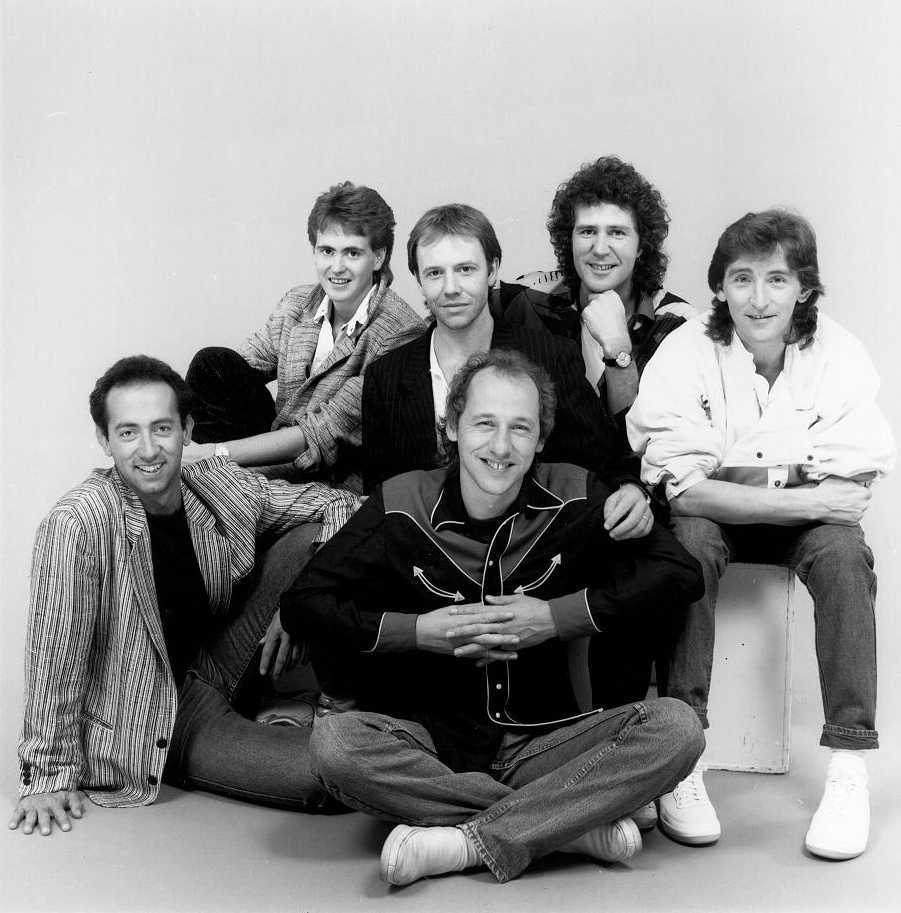I nuovi romantici
“Sultans of Swing” (Dire Straits) – 1978

Quando Mark Knopfler, insieme al fratello David ed al suo compagno di università John Illsley, lasciò la sua prima band professionista, i Brewers Droop. Aveva oramai 28 anni, lavorava come giornalista a Leeds, era sposato da anni con la sua fidanzata de tempi del liceo, aveva scritto una sola canzone che continuava a suonare con tutti i gruppi e gruppetti in cui gli capitava di passare una serata come sostituto chitarrista: “Sultans of swing”. Il testo lo aveva scritto dopo aver visto un trio di jazz in Florida, durante le vacanze, suonare in una bettola disgustosa davanti a pochi turisti ubriachi. Il fatto che avessero un nome così pomposo, vivendo in quel contesto, lo aveva colpito. La canzone, inserita in un demo tape della neonata band Dire Straits, divenne un successo underground prima ancora di essere registrata come si deve e di entrare a far parte come singolo del primo (omonimo) disco della band. A prescindere dall’innegabile abilità tecnica di Mark Knopfler, che negli ultimi 40 anni, infatti, ha suonato o ha fatto il produttore di tutti i più grandi artisti rock, folk, country e jazz del mondo, di lui ha sempre colpito la versatilità, il fatto che nella creazione di assoli gli venissero in mente melodie che, spesso, divenivano più note di quelle originali delle canzoni in cui interveniva, ed un tocco romantico. I Dire Straits, come si sente soprattutto nel loro capolavoro “Brothers in arms”, sono una band malinconia, intensa, romantica – anche per la voce (o dovremmo dire il sussurro) di Knopfler. Figlio di un comunista ebreo non praticante scappato dall’Ungheria alla Scozia negli anni del nazismo, Mark Knopfler porta con sé un mondo di suoni che si mischiano nel rock e nel folk britannico in cui è cresciuto, rendendolo unico. Ma da Eric Clapton a Chet Atkins ed Elton John, da Bob Dylan a Sting, da Phil Collins a Paul McCartney, tutti lo hanno cercato e ci hanno voluto suonare insieme, per dare un sound romantico e “diverso” alle loro ennesime ballate. Dopo di loro sarà un fiorire di band di imitatori, come The Romantics, The Rembrandts, the Hoodoo Gurus, the Psychedelic Furs, the Knack, che produrranno canzoni indimenticabili in un filone musicale (che è il filtro d’oltre Danubio della musica popolare anglosassone, country e celtica) che è ancora oggi estremamente produttivo.
“Sultans of Swing”
You get a shiver in the dark,
It’s a raining in the park but meantime-
South of the river you stop and you hold everything
A band is blowing Dixie, double four time
You feel alright when you hear the music ring
Well now you step inside but you don’t see too many faces
Coming in out of the rain they hear the jazz go down
Competition in other places
Uh but the horns they blowin’ that sound
Way on down south, Way on down south, London town
Check out guitar George, he knows-all the chords
Mind he’s strictly rhythm he doesn’t want to make them cry or sing
They said an old guitar is all, he can afford
When he gets up under the lights to play his thing
And Harry doesn’t mind, if he doesn’t, make the scene
He’s got a daytime job, he’s doing alright
He can play the honky-tonk like anything
Savin’ it up, for Friday night
With the Sultans, we’re the Sultans of Swing
Then a crowd a young boys they’re a foolin’ around in the corner
Drunk and dressed in their best brown baggies and their platform soles
They don’t give a damn about any trumpet playin’ band
It ain’t what they call rock and roll
Then the Sultans, yeah the Sultans they play creole, creole
And then the man he steps right up to the microphone
And says at last just as the time bell rings
Goodnight, now it’s time to go home
And he makes it fast with one more thing
We are the Sultans, we are the Sultans of Swing
(Mark Knopfler)